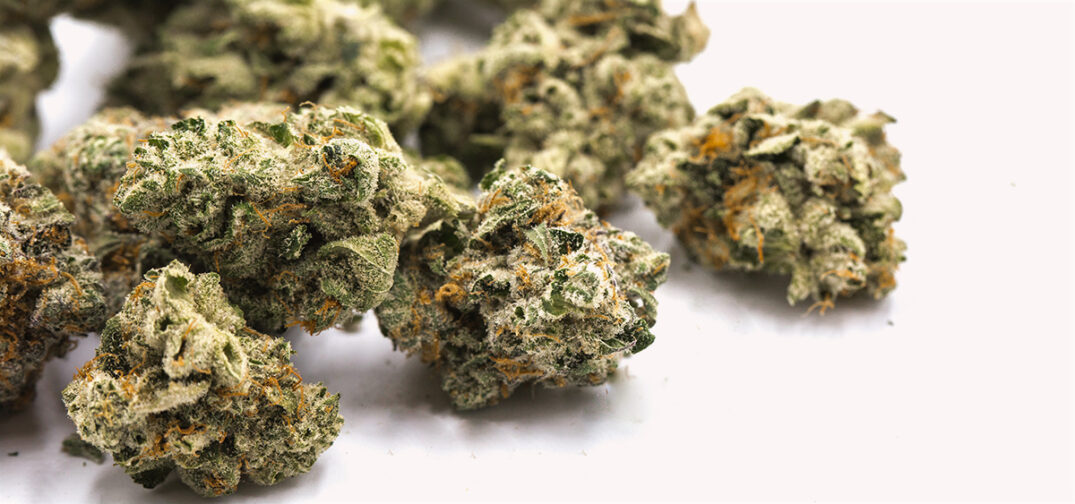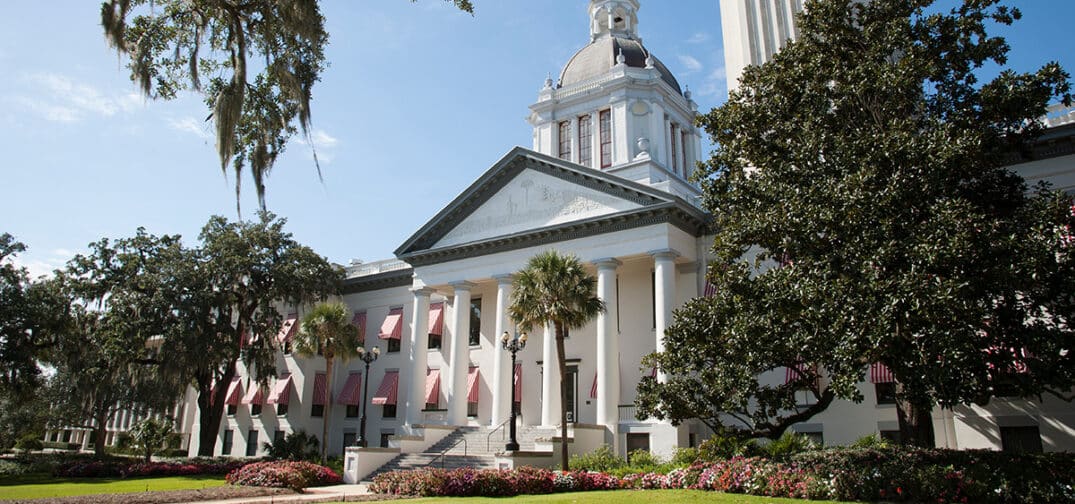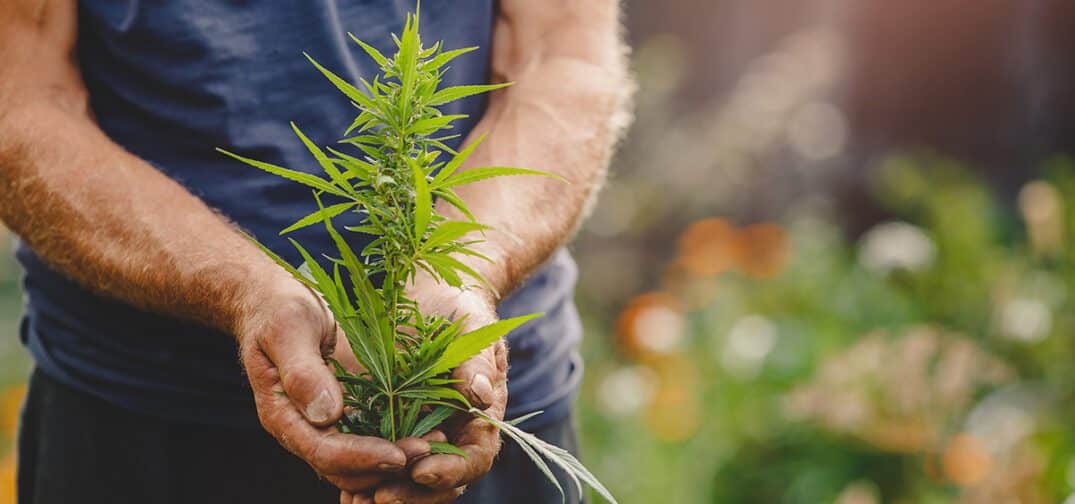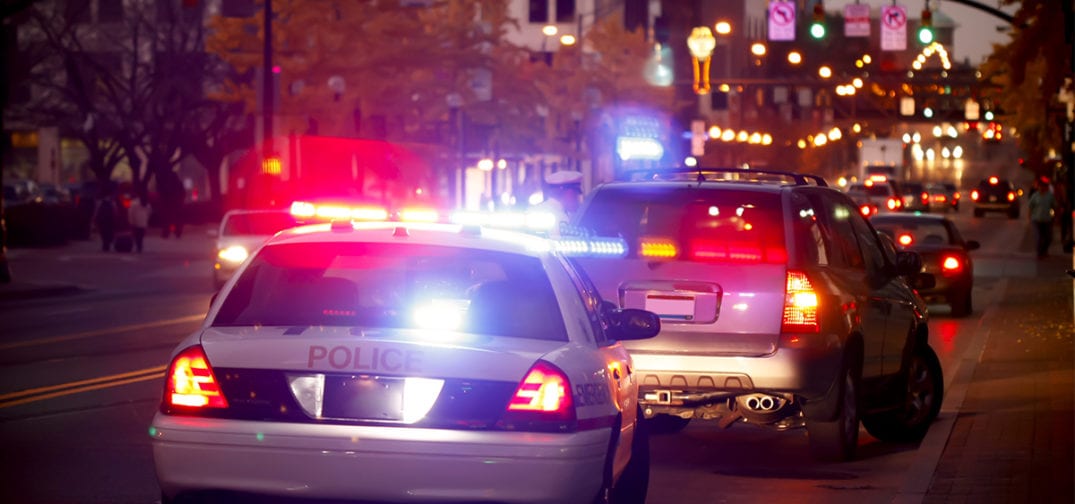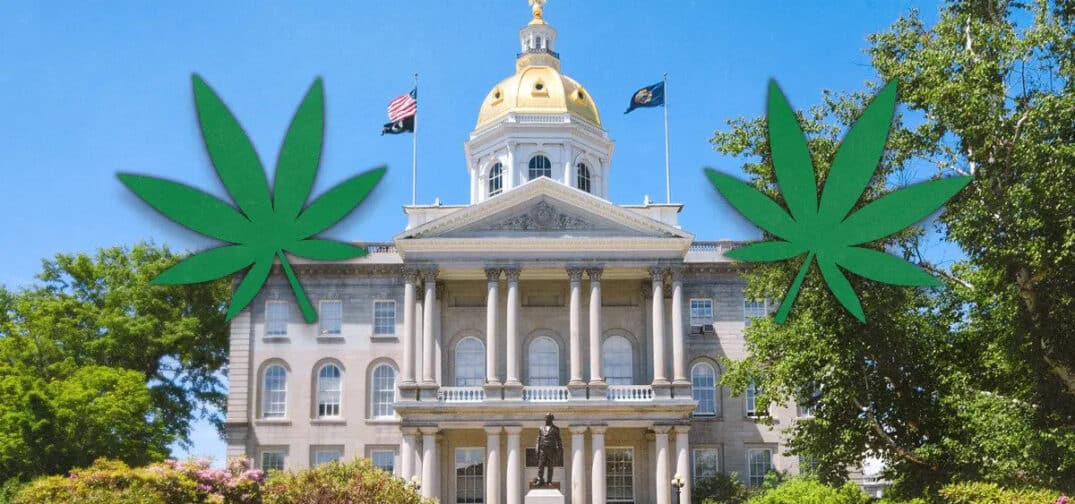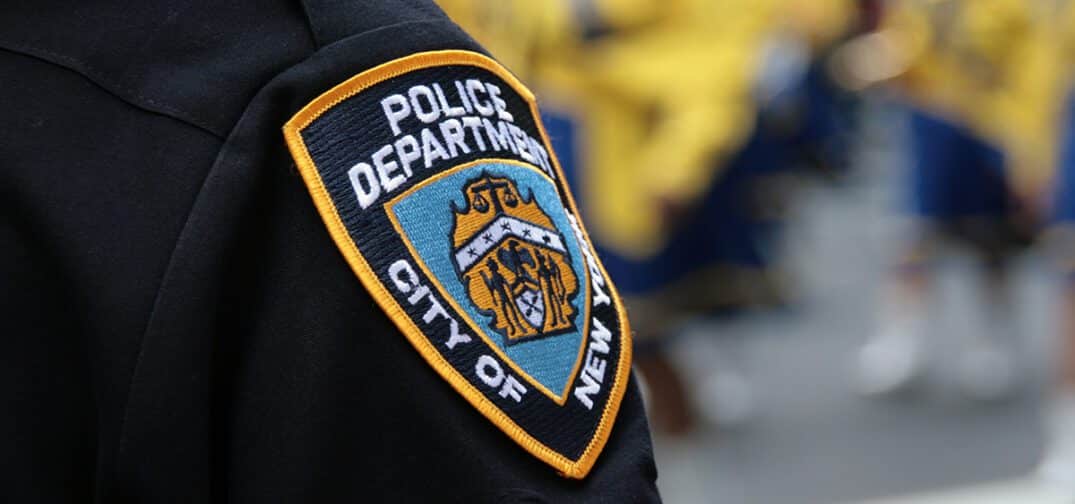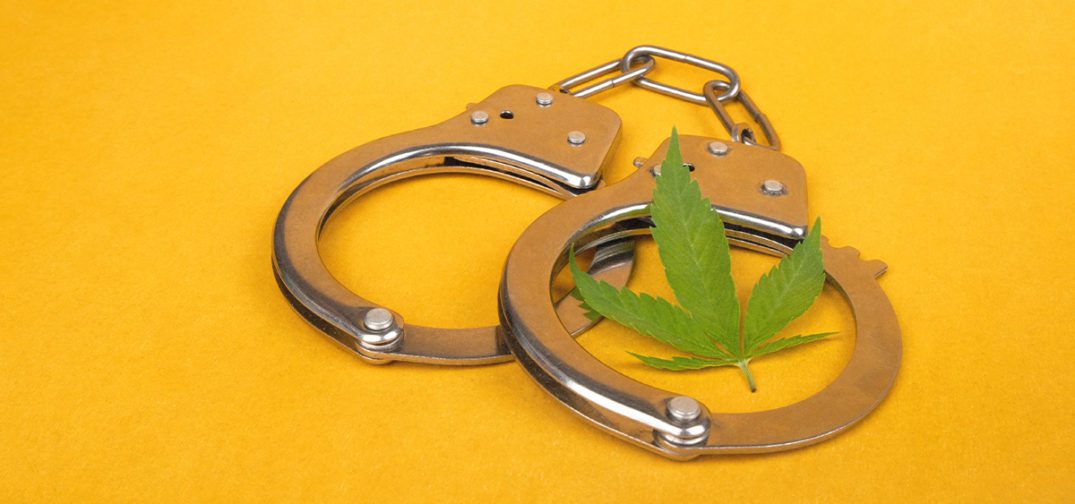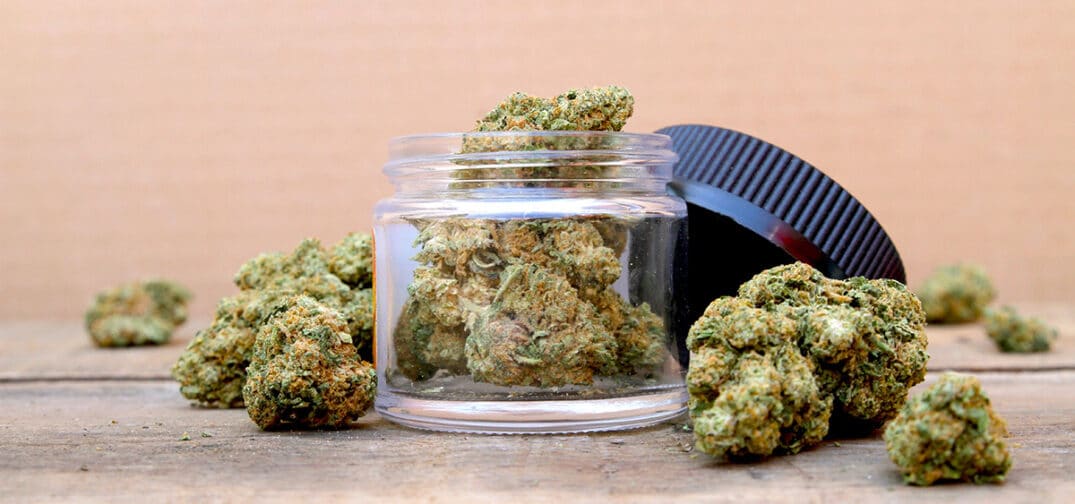Ganjapreneur is pleased to introduce our first syndicated episode of Highly Enlightened, hosted by Jon Purow. With this show, Jon interviews cannabis business leaders and investors to shed light on what it takes to survive and thrive in the tumultuous cannabis industry. You can find more episodes of Highly Enlightened on Buzzsprout. In this episode, Jon welcomes the multi-talented Tiffany Chin, head of cannabis for Snoop Dogg.
Tiffany Chin has 13 years of experience in the entertainment space, working with world famous talent including Snoop Dogg, Eddie Murphy, and Martha Stewart. She has helped artists and talent traverse out of their traditional lane(s) of fame by way of strategic branding partnerships, including brands such as Adidas, AirBnB, Reddit, Tanqueray, Netflix and HBO.
In working closely with Snoop Dogg, Chin co-founded Casa Verde Capital in 2014, as well as Leafs By Snoop (LBS) in 2015, the first widely available celebrity cannabis brand and Snoop Dogg’s first venture into the branded cannabis space.
Chin guest lectures at UCLA for MBA marketing classes, and has consulted with many cannabis agencies and brands – and most recently debuted the Death Row Records Cannabis line in California in 2023. In 2024, Chin launched two cannabis shops alongside Snoop Dogg named S.W.E.D. – which stands for Smoke Weed Every Day (one in Inglewood, and a coffeeshop in Amsterdam). She received her business degree at the Wharton School of Business from the University of Pennsylvania.
Listen to the episode:
Episode sponsored by eBottles
This episode of Highly Enlightened is made possible by eBottles. If you’re in the cannabis business, you know that quality packaging isn’t just important—it’s essential. That’s where eBottles comes in. Whether you’re just starting out or scaling up, eBottles offers proprietary top-of-the-line packaging products built for cannabis. eBottles is a market leader for a good reason: they are experts in the field. Six patents, five warehouse locations around the country, a network of exceptional distributors. Get eBottles and Grow Boldly.
Read the full transcript:
Jon Purow:
Welcome to an interview episode of Highly Informed I’m your host, Jon Purow. Now, before we get to an interview, I’m particularly excited for, I want to note that any opinions I express or my own now as I always like to do, but has been less successful recently, I like to do a quick prayer to the video chat. Gods may. Our wifi connections be sturdy. All dogs and children like my 13-year-old upstairs remain quiet and may Amazon Prime another time. Amen. Now, with that, I have the pleasure of introducing Tiffany Chin, AKA Snoop Dogg’s head of cannabis. I mean, what titles do you like to roll with outside of the best possible title in the history of the universe? In terms of being Snoop Dogg’s, head of Cannabis, which I’m not jealous of whatsoever,
Tiffany Chin:
That’s definitely been an issue in the last two or three years. People call me CEO of Death Row Records Cannabis or Head of Cannabis and Hemp for Snoop Dogg or Head of Cannabis Ventures. I think it doesn’t really matter to me, I just work with him and manage this portion of his business for him. I lean into more like Head of Cannabis and Hemp for Snoop. Yeah.
Jon Purow:
Okay. So whatever it is, hey, head of cannabis and hemp there. I just want to thank you for taking the time out of your very busy schedule, trying to figure out what your title is to join me for this joint endeavor, so I appreciate that very much.
Tiffany Chin:
Of course, Jon. Anytime.
Jon Purow:
Okay. So as usual, I’m going to get started immediately with a hardball question that’s extremely serious. This is my serious face for the people who are watching rather than listening. Now, do you consider it kind of a shame that you can’t use the inevitable brand death row records in other countries for cannabis because they might think that it refers to killing murderers rather than ridiculously good classic hip hop?
Tiffany Chin:
It’s interesting because we’ve done quite a few studies around the recognition and understanding of what Death Row records is versus what death row is versus even shorter what death is. Obviously everyone knows what that is, but the United States very much on its own island when it comes to putting people on death row, capital punishment, all those things. As well as on the other side of the coin, doing really cool things with marketing with the word death for certain products. My favorite example would be Liquid Death, right? It’s just a water product, but when it comes to any illusions to death or harm or anything with a vice product, it is often looked down upon, I would say. Have you seen any products like that in the alcohol space? Probably not. I know that my personal and other individual’s opinions or thoughts are that this is just a brand, not so much a reference to prisoners or murderers or anyone on death row.
It still conveys that notoriety even from the nineties and when we had a little bit more of that contention between the coasts, between the gangs, between certain hip hop artists. What Snoop has tried to do with the brand is actually revitalize it and notarize it in terms of making it not notorious as opposed to what it used to be. So bringing the light, the love, the transparency, and the group and the team back together. I think something he likes to say a lot is all Coast love as opposed to necessarily West Coast, east Coast. He’s a fan of everybody. He’s an everyday man and it’s not so much about Death Row, but we do have to work with the countries who are allowing us to sell product and bring product that Snoop would smoke to them. And a lot of times we do pitch the idea of death row records, cannabis and always we talk to legal teams and different governmental bodies or governing bodies, and they’re always like, yeah, we’d give you a 50 50 shot at that.
And that doesn’t even go into the process of actually having to apply or do the things, which then if we get down the road and we get on the other side of the 50, then we’ve done all this work for nothing. So instead, we’ve kind of leaned into the idea and the persona of Snoop internationally because as an individual he is so recognizable and actually bringing back the old brand that was, if you guys remember, leaf Spice, Snoop, LBS, which we had always intended to be stylized in lowercase so that it would be colloquially referred to as pounds. So now additionally he has a brand called Dog Pounds, which is spelled D-O-G-G-L-B Bs. So it’s funny, a lot of people in Canada think of it colloquially as dog labs or dog libs. So we’ve had to reeducate them and be like, Hey, there’s a reason why all of your weight in flour is at three and a half 14 these
Jon Purow:
Brand. Yeah, exactly.
Tiffany Chin:
It’s based on ounces and pounds. Right. So yeah,
Jon Purow:
So I appreciate it by the way, when you’re talking about to de notarize because of course with also referencing East Coast, west Coast, in my head I had Biggie playing no Notorious. And then here’s the other thing that occurs to me, and this is just me spitballing my ideas that I can’t help my brain box from coming up with. But I mean if it’s called Death Row Records, you could almost flip that on its head because of the criminal justice element in the cannabis industry. And the unfairness I remember covering in the podcast, I can’t recall if it was someone on death row or being put in life in prison because of a Three Strikes Law. It was an inmate in Mississippi, I’m almost positive, who because of two, one, what I think was a violent crime thing 30 years ago, his third strike was having a certain possession of a certain amount of marijuana that I don’t remember.
And I don’t like to call marijuana because of the racist origin. So I’ve been calling it HTC for high THC cannabis. And so I almost feel like there’s something that you could kind of do there, right? There’s an association. You could be like death row keeping drug people off of death row. That’s actually what we’re for. So boom, that’s for free. I gave that to you right now. So when we were talking and linking up about speaking, I was really, really heartened. I think that when you are talking about Snoop and how he cares or whatever about doing the right thing, and I think that I like to say always in this industry that we could smoke our cookies and eat them too. And by that I mean that it is so nascent in this industry that we are still building it together. One of my other podcast guests, when I said What was the surprising the industry, he said, no one has any idea what the fuck they’re doing. Pardon my French, that’s a legal term. Fuck. And then that we could smoke our cookies and eat them too, that we could prosper while doing good. Can you talk a little bit about how doing good motivates Snoop and an endeavor is inside and outside cannabis?
Tiffany Chin:
Yeah, for sure. So I don’t know if this is common knowledge, but his dad is actually a veteran from the Vietnam War. Got it. And we are actually doing something for him and for veterans coming up during Veterans Day at the store in Los Angeles. Yeah, we are going to be honoring him as well as any profits that come from sales for that day. We’ll be going towards, I need to double check on what entity it is or what organization it is, but it’s definitely going to a specific veterans organization. We’re
Jon Purow:
Working a good one. It’s going to, the Good guys is only
Tiffany Chin:
Exactly working Cordell, who is Snoop’s son, so the grandson of Papa Snoop. And that’s something that Snoop obviously cares a lot about, but that’s only one portion. And obviously cannabis we are working on doing, in almost all of our deals, we have a matching requirement for any amount that we make together that year to donate to a specific cause of Snoop’s desire. Usually, if not always, the cannabis sector is for keeping individuals out of prison or helping them expunge their records or in a more identifiable way, donating to their commissary, making sure that they get legal help, making sure that the family members that are not inside are getting the help they need for basic things like groceries and putting gas in their car if their breadwinner of the family is now incarcerated, who is helping them with their childcare. So all these things around recidivism as well.
We want to make sure that they’re not just out, but that they’re kept out for nonviolent crimes on the other side of things. And in general, Snoop is just such a magnanimous person. Before I started for him and I started, when I did start, I realized every Thanksgiving he hands out turkeys in Inglewood himself. It’s not like he rolls up with a van and then stays in the van and has other people. He hands them out himself and he posted up in Inglewood, which I learned about this, but apparently it’s blood territory and he’s a Crip. And so it was definitely a little strange for him to post up there, but he has so much more jobs, community, everything around that Inglewood space. I would say that he brought the community backup right before SoFi Stadium and all these other things, and Inglewood started getting built up about five, 10 years ago. On top of that, he has been doing the Snoop Youth Football League or the SYFL.
Jon Purow:
I saw it for
Tiffany Chin:
Years. And a lot of the kids that he started out with are now in the NFL or went on to play college ball. And then his wife is amazing too. She was like, why are these only for boys? Let’s do something for the girls too. So if you got the young men here from age five to 18, why not the ladies? So she started a dance group for the girls who would do cheerleading or more physical and interesting dance for the, and cheering on the boys who were playing. So the family in general is just, they want to give back. They know how fortunate they’ve been and how lucky they’ve been, and they just want to give back. I mean, there’s so many other things. There was this time when, back in the reincarnated years, that was in 2012, and he was really upset one day when the police came in and his daughter’s young at this time, she’s probably under 10 years old, and they went in and raided his home for guns, but he didn’t have any guns. He had felony convictions. So he was like, I’m not carrying guns. And at that point, he realized he didn’t want this type of lifestyle to be exposed to his children. And so I think this was back in 2014 or so, Diana nyad him the quarterback of the 49 ERs, God, what’s his name? The old one
Jon Purow:
At the time, Joe Montana or Steve Young,
Tiffany Chin:
Joe, Montana. Thank you. So the three of them, and also Hammer, it was a really, really great hodgepodge of when I was young, all the different stars and athletes that I knew coming together in San Francisco at the Airbnb offices and throwing an auction for Mc Hammer would auction off a dance lesson. Joe Montana is auctioning off a signed helmet and assigned football and his gloves, right? Snoop is auctioning off his shoes or some paintings he did. And they raised so much money for a program called No Guns Allowed. And it’s not necessarily being no guns ban all guns, but rather the process of becoming a more peaceful individual, being more mindful, as we talked about earlier, as well as being a grandfather. He’s now a grandfather to at, I can’t remember, at least six children, six grandkids. And so I just know that this is who he is now, and he just cares a lot about his community and making sure that he’s not the only one that’s winning. Right.
Jon Purow:
Yeah, no, I think that that’s awesome. So I mean, look, obviously he’s doing so many of these things, but look, he occupies a completely unique position in this industry because he is likely the most famous person, famous for an association with cannabis possibly in the world, right? Yes. And so his name opens doors that otherwise don’t open and wouldn’t open for virtually sometimes any other person in the industry. So do you feel a little bit, and any reference to a comic book is a good reference in my book. Do you feel a little bit like Spider-Man in the movies when they say with great power comes great responsibility because Snoop kind of needs to be, and I always intend my pot puns a trailblazer for the industry
Tiffany Chin:
He blazes the trail of. Yeah. It’s funny that you should ask that question because I don’t feel as though, again with the Spider-Man reference, I love it by the way, with great power comes great responsibility, I would say that I don’t necessarily feel like I have great power, and with that lack of feeling, I then don’t take advantage of my position, if that makes any sense, right?
Jon Purow:
No, no, exactly. If you don’t feel self important because of where you’re at, you’re not going to No. So if you come in as a genuine, and look what I say this is having family members dealing with the sports and everything. When you meet people and you find out the behind the scenes scoop that someone in Snoop’s echelon is a good person, it’s like Chicken Soup for the soul in an unsteady world is the way that I try to put it. And so I think that you just answered the question already. If you are a modest person coming down to earth, right? It’s like, oh, these doors are opening for me and you’re just someone who’s out there to do good. And so it’s only really if you consider yourself at that different level that it gets into your head to the point where you start being like, oh shit, I got to do something for all of us kind of thing. Sure,
Tiffany Chin:
Yeah. And it’s definitely, I will acknowledge that this is not an easy job, but when you think about I am working for the number one guy in terms of recognition in the world and I’m doing this job for him, the amount of deal flow, and like you said earlier, the doors that open the responses, my response rate is a hundred percent okay. It’s not So in that sense, yes, it is easier because I get access to that door, that individual, that team, that lawyer, whatever it is. But at the same time, I then have to sift through what could be 10, 20, 50 times as many opportunities as anyone.
Jon Purow:
Everybody wants something, right? And so your role changes in that you need to sift out the weed wheat from the kind of chafe or Yeah, you saw what I was going for there. I didn’t quite stick the landing, so no. So I mean, I get it, right? It’s like sifting through everything and let me just do a girl dad interlude because my water bottle disappeared. But this Barbie one was remaining here, and so we got to hydrate. It’s very important,
Tiffany Chin:
Hydrate, drink your water, eat your protein.
Jon Purow:
So I also think in a macro scale as a trailblazer, as someone who the door, and by the way, could we just rewind a second and talk about how it’s not just a function that you were lucky enough to work for the number one guy, it’s that he pursued you, right? You were like, no, no, sorry, I’m snoop. I can’t come back and work for you. I have a contractual commitment. And he’s like, no, Tiffany, I’m more like Tiffany, please, I can’t do a great snoop. And you were just like, come on. There has to have been a little moment there where you were just like, you looked in the mirror and you’re like, yeah,
Tiffany Chin:
Definitely. I wouldn’t say he did pursue me, but not to the extent. He’s a very cool person. So
He’s being earnest, but at the same time, not at all desperate or anything more So just who I have right now is not working. I’ve seen what you’ve done in the past, and I also like you, so I’d like to bring you back. If you don’t want to come back, that’s fine. Then I need to find somebody. I know his schedules, I know the way he thinks. He probably didn’t, this wasn’t top of mind for him until every three or four months or two or three months. And that’s when he would be like, Hey, oh yeah, I remember that business is kind of doing middling. Let’s see if we can hit Tiffany up again. And it was a moment of after two or three follow-ups that I was like, okay, I’m going to do this. And that was a large anxiety moment for me because I wasn’t sure how I was going to support my family.
I wasn’t sure. When you have a corporate or a startup job, everything is very laid out and contractual. In my previous experience, not working directly for Snoop, but working for another individual or company that wasn’t contracted by the Snoop engine or machine. I had been burned and I felt like, is that going to be the same moving forward? On one of our first calls, he basically was just like, don’t worry about it. Got you. Just invoice me. Just do this. I need you to get started. This is great, blah, blah, blah. And he actually did me one better and actually gave me a little bit more money than I had initially requested. So he is just great. He gave me the opportunity. I think I’ve proven myself over the last two and a half years, so I very grateful to him. Yeah,
Jon Purow:
That was great. I’m going to send over formal adoption papers after the interview. So speaking of being a trailblazer, I think that the industry, you are highly intelligent. You engage in complex ery to use a very dated SNL George W. Bush reference. Now, I kind of feel like the industry could learn a little bit from your moves, just like how investors look at what the big hedge funds do and to kind of parse and understand why they’re doing what they’re doing. What are the big initiatives? I know you mentioned Swede, which being a lover of puny and alliteration, I’m also a fan of acronyms. So to be clear for everyone, it means smoke weed every day. Speaking of, I always thought that Nate Dogg had the best job ever. I was, may he rest in peace, that wonderful, velvety, velvety voice. So a swed, what are some of the initiatives that you’re working on? What are some of the hedges that you’re doing that people might find interesting?
Tiffany Chin:
Yeah, sure. So we launched the first Swed store in Inglewood, which is Snoop’s backyard, and less than 10 or 15 minutes away from where he works mostly. And then that was back on July 14th, July 15th, he went to London and Paris to do the Olympics. Then on August 1st, we opened our first suite coffee shop in Amsterdam.
Interestingly enough, I think most people understand that a coffee shop is a place to consume cannabis. But just to make sure, in case there are any people on this podcast that don’t realize a coffee shop is not an actual coffee shop in Amsterdam. You can drink coffee there, but you can also purchase grams, ounces, whatever of weed and smoke it, roll it up, do whatever you want. Yep. Okay. Now that we’ve got that clarified, subsequently, our plan with Swede as a retail operation is not just going to stick with the brick and mortar. So everywhere that we do any type of e-commerce or retail type of sale that will be cannabis related, smoking related, that will all be under the Swede name. My favorite thought about this, and we did this branding exercise and Snoop loved it, was we really wanted to bring the California vibe, branding and understanding of this is good weed.
This is California bud to the rest of the world. And obviously the first one was in our backyard in Inglewood, but we utilized, and I’ll just show you right here, we utilized a standard California license plate. But if you guys realize the California license plate has so many different variations that we’re able to make those variations and then give them exclusively potentially to other retailers. So the one in LA is this one, the black and yellow one, right? Snoop really, really enjoyed those colors. Raiders fan, yay. Right? And in Amsterdam, he was like, that’s where we need the classic California, the current license plate, because that is what is recognizable now. And the International Sea needs that taste of California, and that’s logically so brilliant. And then you can just imagine branding, why all the different types of apparel, different types of rolling trays made of actual metal within BOS lettering that
Jon Purow:
You can
Tiffany Chin:
From this, right? And it’s no longer a, this is very, how do I say it? It’s cool, but muted in terms of nothing like colors and drippy and cartoons and whatever else that you’re seeing a lot on packaging and apparel nowadays, but rather something simple, basic. And now, right? If you don’t know, you’re going to ask, Hey, what does that stand for? Is it sweat? Is it swed? And we’ve basically told everyone, you pronounce it swed because it rhymes with weed. And then if you don’t know, it’s smoke weed every day. Yeah.
Jon Purow:
If you don’t know now, next word, I’m not going to say. Yeah, right was No, no, I appreciate it. I think it’s a very clever idea. So just to be clear, by the way, the rolling trays are like California license plates.
Tiffany Chin:
Yep, yep. They will be that height emboss and everything. So that’s not a format that’s been done before. And I think we just really want to make sure everyone understands California lifestyle is getting exported or revitalized.
Jon Purow:
I mean, California weed’s been getting exported for decades and lifting up the rest of the entire country. One of the funniest stories ever to me that I covered on the podcast is when they did a $600 million bust in the Oklahoma medical market and it was traveling all around the country and they did the list of the 17 states that it went to, and the last state was California. And I was like, what schmuck in California didn’t go to the Emerald Triangle and imported from Oklahoma? Where’s your state pride? You moron. So now let’s talk about, so by the way, just a belated marleau on opening the Swedes store and the Amsterdam one. Let’s talk about another kind of strategic initiative that you’ve worked on. What’s your strategy with respect to hemp products? And is there anything that you would like to discuss that will be live by the time that this interview airs because we don’t have a time machine? Sure,
Tiffany Chin:
Sure. So the hemp market is very interesting. I think there are a lot of differing legal opinions as well as just general opinions that are not legal or from a legal source about what might happen in November in 20 25, 18 months after the decision’s made, two
Jon Purow:
Years
Tiffany Chin:
After it’s made, whatever it might be. I’m of the opinion, and I’ll say I’m 85% strong in this opinion, it cat’s out of the bag. And it’s not just one cat, it’s 10 cats. It’s a hundred cats. You can’t get them back in the bag. And the best way to make things happen rather than ban it or only do the regulated market, is to, I would not prefer this, but this is what I think it will happen, is that the regulated market will expand to include hemp. And the farm bill will then specifically close the loophole around their initial intention, which was to create and grow a lot of this crop for textiles and paper and other manufacturing products like plastic, which I’m very excited about. Hemp plastic biodegradable instead of hempcrete
Jon Purow:
Hempcrete. Very exciting.
Tiffany Chin:
Have you seen that Porsche that was made out of hemp? That’s pretty cool,
Jon Purow:
But it sounds amazing.
Tiffany Chin:
And then Henry Ford back in the 18, 18 hundreds built a car out of hemp. So there’s really actual industrial applications for this other than women of the humans around the world. And what I hope to see happen is with the added regulation, I hope for two 80 to go away, obviously that’s the lowest, that’s
Jon Purow:
Low hanging fruit that should
Tiffany Chin:
And then alleviate a lot of the business operations, cashflow, bottom lines, all that stuff. And then subsequently, why wouldn’t the country or even any individual state want to see nine figures a year in added tax revenue for the rest of their state? Right? The states hate it the most are the ones that are most rejecting this plant.
Jon Purow:
I mean, Texas, Delta hemp-derived cannabinoids are killing in Texas because it’s ridiculous that they’ll never legalize adult use because they have such a shitty constructed government, no, no offense Texas,
Tiffany Chin:
But they don’t have the structure to collect the taxes on these things. I mean, the numbers that you and I are probably hearing in Texas are probably wide ranging from anywhere from two, three, 4 billion to maybe eight to 10 billion. All those numbers, even if you take the lower end and you just tax it by 10%, that’s a billion dollars, a hundred million dollars that Texas could be using to help build a better energy grid. I’m using Texas as a, but Mississippi, Alabama, all these places,
Jon Purow:
No, exactly. Why turn down free money that 70% of your population is four
Tiffany Chin:
Pretty consuming. So why not just help them get it in a safer way? And that’s the other problem with hemp. And this might just be my understanding and not really true, but if you are taking product that has 0.3% THC, let’s not even talk about THCA flour when they cut it a week or two before it that way. But if you are getting THC at 0.3% weight or lower, and then you are distilling it in high concentration to make a gummy, for example, that shit better be organic because that stuff ppms is now becoming PPTs, PP h, I don’t know. So you’re ingesting all these things that may be super harmful for you. So that’s why we do need regulation on those things. What we do is we identify and specifically find organic and organic farms are organically grown technically
Jon Purow:
Because they’re not Yeah, we can’t say organic because of Yeah, exactly.
Tiffany Chin:
G-M-P-N-S-F, all of those certifications are extremely important to us. We never wanted Snoop Dogg fucking got me sick. No, no, no, no. That’s not happening here. We are extremely tight around the products we put out. We test ’em all. Some combination or permutation of Snoop’s team, his homies from the days like Snoop himself. We all test the product. So if one of us dies, then yeah, we’re not going to put it out. We’re getting the COAs, we’re getting all the testing and everything. So that’s something that I can proudly say about our products. But yeah, that’s my long-winded answer to my thought about where hemp will go. Probably not my desire, but it is definitely not the worst thing. Yeah,
Jon Purow:
I think we need to talk this out as a thought experiment because I haven’t necessarily heard that model before and I think we need to talk it out. I think it’s very, very interesting. And so I agree with you with the overall proposition that I think that the cat’s out of the bag and it’s not going to go back in. And that’s a function of, I refer back to law school when it clicked in my head that the teacher said, you don’t just make the laws, you have to enforce them to. And so when you have the DEA that rightfully and deservedly is focusing on fentanyl and crystal meth and doesn’t have the capabilities of also caring about something that’s legal to over half the adult US population, I get that. And with how dysfunctional congress is, I mean the latest that I heard from certain people, I think that essentially nothing ends up happening.
And so I think it just maintains status. And I think that the hemp market almost needs to self-regulate, but the idea of it being encompassed in the state license market is fascinating to me because covering everything on the podcast, the states that have started to try and doing that, they had all sorts of different reactions. So Michigan was the first state that put something out in terms of a draft bill where they’re going to have to sell hemp stuff in dispensaries and the state license market flipped out, which is really interesting because you kind of would want them playing on the same field. I know it’s so tough, but at the same time, they could get purchased in any single gas station out there and you want them restrained to the same shelves as you to some extent. And I thought that that was fascinating.
But I like the idea of look, every state stepping in, there’s this whole new wave of, they came in waves in terms of delta eight and everything. And I agree with you that it is terrifying to think about what could be in these different things where there’s synthetic conversion and we have no idea about the health consequences of some of these, but I find it fascinating. I mean, I lost my train of thought, which is what happens, it’s an occupational hazard of a lawyer who talks a lot and then sometimes and then in this particular industry. So let’s just roll with that. But you also were saying that in terms of how you’re going to be bringing these products to market, is there something that we can be looking forward to that will be launched in the semi near present or future?
Tiffany Chin:
So that’s a great question. So following up the two stores that we’ve launched, we are launching our swed.com. So that’s just as I said it, SW d.com. It’s essentially our e-commerce website as well as supporting the smoke weed everyday lifestyle. I’m a daily consumer, I assume you are. Snoop is, there’s so many people who consume every day, but what that looks like for every person is different. You have a 13-year-old, she’s probably getting curious about this kind of stuff. Probably
Jon Purow:
I wish a little bit more. No, I’m
Tiffany Chin:
Kidding. Do you have a teenager at home? You probably want to have conversations with them about yourself.
Jon Purow:
Exactly, yes.
Tiffany Chin:
Leaving it around. Whereas I don’t consume until at seven or seven 30 after I put my kid down about two four. But other people, some people on my team, they smoke throughout the day and they’re fully functional and if not, if anything, they actually operate better. And so there are different types of smoke weed everyday people. And so how do we cater to these everyday? There are different products and types of things. Snoop has been a long time backwood smoker and before that he used to smoke Swishers or he used to wrap his weed in these blunts tobacco blunts. And so what we’ve done is we’ve essentially created the same, if not better quality products from Pennsylvania, the Dominican Republic. So we basically have a cigarillo dupe, a backwoods wrap dupe, and a flat wrap dupe.
And they’re all at extremely competitive prices and only in his favorite flavors. So it’s very much like a Snoop product. He is an everyday man. I love working for him because while he is a very recognizable individual and celebrity, he is also very down to earth, right? He is like, I’m not trying to sell a hundred dollars eighth or even a $50 eighth. I want that shit to be 35 to $45. And I’m like, that’s actually, I love that. I love that. And he’s like, but it has to be fire. And I’m like, okay, well let’s make sure.
So there’s some stuff that might be super fire that is pricier for us to buy and source or grow, but we’ll make that the $50 one, but the majority of your products will be at 35. And he’s like, I love this. And the same idea around our infused pre-rolls, all of the products that we have, we are not pricing at celebrity prices because at the same time, I would not necessarily consider death row records like a celebrity brand. It’s a confluence, it’s an umbrella of many, many different artists and a movement rather than Snoop Dogg. It just happened. He bought, there’s little record label, but more so because he wanted to start paying people the right amounts of money. He was like, how is this possible that I’m not getting paid? But also every one of my homies that got signed onto this label are not getting their splits. So he bought the catalog back and he’s extremely, extremely transparent about these things. I remember when I talked to him about Web3 technology, which I know very little about. And he was like, whatever about the NFTs, the Web3 technology is what’s really interesting. You can track every single time he makes a change.
I’m educated not in the music production, licensing anything business. So he, he’s teaching this to me and he’s like, so Shaggy, he’s our sound engineer. He comes in for 45 minutes and he makes these changes. Great. Tiffany comes in for 15 minutes and she does this that other, well, now we know that your contribution was literally 33% of Shaggy’s contribution. So if he gets 3% on
Jon Purow:
The split,
Tiffany Chin:
He now gets 1% on the split. And I’m like, he’s, because you can track that and you don’t have to count on John or Tiffany being honest about the actual time they inputted. This is how the future of making sure that things are fair is. And I just love that. And his transparency and fairness and desire to make sure everyone is lifted up. I feel like it’s very palpable to the public, but if not, I am here to try and make it that way.
Jon Purow:
And it’s cool that he’s into Web3 0.0 stuff and the level of accountability and how that could equate to a more fair way of calculating royalties. I mean, I talk about thinking forward on something now. I was going to go to the next question and then I just looked at it and saw that it was the joking question that I sent just to mess with you. It said, who would win in a fight between a shark and a bear? So I’m not going to ask you that, obviously the shark answer, but I say that just because I saw Jaws when I was eight and it ruined me and it back-to-back double feature with Arachnophobia is the way I pictured in my brain because sharks and spiders not cool. I mean spiders that swim even more terrifying now. I always like to, there’s some of these questions now that I really kind of enjoy asking and asking more of my guests because to try and make things constructive and a learning experience for people watching.
So you already were talking a little bit about your experience, say like a startup versus what you’re doing now of all the experiences or skills that you brought from the past, whether it’s your time at Watton and I just arbitrarily make fun of Boston Accents being a New York Yankees fan. So sorry, I mean I know Walton’s in Pennsylvania, but I got to use it’s just the R. Yeah. And also working with Snoop in other endeavors now, what do you think was the most kind of constructive thing that you brought with you to the cannabis industry?
Tiffany Chin:
Yeah, so cannabis is very interesting in that the workforce in cannabis is perceived as either or You are either a chatter Brad buttoned up wearing your Patagonia sweater vest or some shit, or you’re a total fucking amateur. You smoke all day, you’re a stoner and maybe you grow good weed, maybe you process good shit, but you don’t know anything about structure and business operations and doing deals. I like to think that I am a combination of both while also not being too much of either and to make people comfortable when I am speaking with ’em. It’s definitely been an interesting line to toe.
But I would say that outside of my direct experiences, the way that I converse and interact with individuals I think was definitely ingrained into me. High school, college, treat everyone with kindness, always lend a listening ear. I will always take a conversation whether or not I give you a second one, that’s another question, but I will always take at least the first conversation. And that is something that I know a lot of other individuals in this space just don’t do. They don’t feel like it’s worth their time or it’s not necessary. Now if I don’t get back to you on email or phone, that might be because I looked at your message, made a mental note to get back to you, and then that mental note went away. So there might be times when you have to text me a couple times,
Jon Purow:
That’s collateral damage in the industry with our wonderful memories.
Tiffany Chin:
It’s by far definitely not intentional. So in that sense, I know a couple people that have been like, Hey, I kept calling you and I’m like, I’m so sorry, I’ll call you back. And then I do. And so they do know that I do follow up with them. But I would say on the other side of the coin, the actual more physical experience that I’ve had was at Target. Target has a very, very target corporate right in Minneapolis, has a very specific structured, which is very, very not the same to cannabis
Or talent in any way. Program I worked through there, did their rotation, ended up doing a good amount of time in the entertainment department, which I asked for. And they usually don’t grant requests, they just say, you’re going to baby, you’re going to grocery, you’re going to electronics. So I got to be in the video games, the movies and the music, which music was the most important thing to me. So it was really interesting to see how we would strategize for in stocks to deplete as well as the number of facings for certain artists albums or even genres. So we got to work on this really cool multicultural project where we found and looked at different data to determine the retail locations that had a higher percentage of Hispanic and black shoppers. And so then we appropriately, instead of having a bunch of Taylor Swift and whatever else we had, or hip hop or r and b or some Kino or all these really great different things that they’re the ones that are looking for that, not for Britney Spears or I’m using really dated examples, but
Jon Purow:
I do that for all my references. Please don’t feel my memory was preserved in time when I started using cannabis more in college. So all my references are like the mosquito held in Amber from Jurassic Park. Everything is like 20 to 30 years old. That’s my memory. So please don’t feel self-conscious referencing Britney Spears. You’re amongst friends.
Tiffany Chin:
And so I would say I’ve really been able to implement some of those experiences in the retail exercise that we’re doing right now and the adventure that we’re going into retail. But I would say CPG is my bread and butter, and it’s been really exciting to be able to create in this new category of CPG and understand my most exciting and famous thing, not famous. My most exciting thing right now is beverages just because it’s saturated market, but our beverages tastes so good. And we’re in DoorDash, we’re in total wine, we’re about to be in goPuff. So it’s like the access to these beverages will be greater than the access to our flour or even smoking extension. And so it’s just, sorry, there’s just so much excitement around doing and how we’re moving forward. So
Jon Purow:
I want call credit where it’s due. So in asking you about something that you brought that helped you in this industry, I’ll tell you one thing that you keyed upon that I think is so important that people don’t do. You asked for something that was atypical. You asked to be put in a specific division, and I think I always used to roll over the expression fortune favors the bold in my head trying to really understand it a hundred percent. And the fact of the matter is, if you hadn’t had the courage to ask for something that was atypical, you wouldn’t have obtained an atypical result. And so I think that that’s something admirable that you just threw in there that I think should be called out because it’s not ask, right? Ask and be able to hear the word no. And I also believe that something that’s got to be very, very useful for you in your position, like you said, where you’re a nice person, so you take that meeting and everything. For any of us, the ability to say no is an incredibly important life skill, and it’s got to be well time’s a thousand for you. You probably have to say no a lot more because sometimes it’s time constraints, sometimes it’s resources. Those are the most limited things. But I got to think that that’s also very, very important to your day to day, right?
Tiffany Chin:
Yeah, I am so glad you brought that up because I have had to advise. It’s interesting, most of the people I do advise are women, and I tell them, and I think women have an issue with this, is you can’t get something you don’t ask for, right? You’re not going to get handed stuff, that’s fine. Maybe you do, that’s great if you do. But the majority of people, and also women are not going to get handed things. No. The worst thing you can hear is the word no. And where are you? You’re at the same spot that you started. That’s it. There’s nothing. If anything, you get more information from that answer. Are you still happy working for this person or do you want to continue doing this? Maybe it’s time to move on. Maybe it’s time to catch a bigger fish. If anything, asking that question results in more knowledge, more confidence, or the courage to break free and do something else.
Jon Purow:
Yeah. Yeah. No, I agree about it. It reminds me of a quote that one of my abs one fed me that said, what’s on the other side of fear? Nothing from the very famous 21st century philosopher, Jamie Fox. I love that one.
Tiffany Chin:
What’s the other one? Fear and anxiety and excitement are the same energy, but it’s just your preparation for what is about to happen. So
When I got reframed that I was like, anytime I would get anxious, I’d just be like, okay, okay, you’re actually excited, you’re excited, concerned. The outcome might be less than. And if anything, lemme tell you, John, I would say anxiety. I know it’s not a great thing to feel, but with excitement, there is that almost guaranteed outcome that it’s less than what you expected it to be. Like, I’m excited when I was in seventh grade. I’m excited to go to that dance with the middle school boys and girls. And then whatever you expect to happen doesn’t happen. Or it does and it’s not that great. But then if you have anxiety and you’re like, ah, this is going to suck. If it sucks, expectation is met. But if it’s any better than that, even by a percentage, you end up happier because your anxiety is now gone and you experienced something that was better than what your expectations were.
Jon Purow:
Yeah. No, no. Look, I try to maintain mindfulness because I feel like my brain goes down non-constructive cycles if I’m getting towards anxiety or anything, right? But it’s also funny because you’re talking about excitement and everything, and I’m thinking about breaking my back. I’m thinking about the fact that I am now more excited than I’ve ever fricking been to do everything. But I actually need to modulate myself because every single little moment, I don’t need motivation ever again for the rest of my life. I have fuel because I could look down at my legs and say I was as close to not being able to use them. And that’s why I’m going to be the first one on every dance floor for the rest of my life. And you could hold me to that, dear listener slash viewers. You could challenge me to a dance off at any time if you could take the hit to your ego when you lose, unless it’s country music. I’m kidding. So I appreciate everything that you’re saying, and I love how these interviews can end up getting a little bit philosophical and stuff and talking about meditation or the hypnosis that really got me through the recovery just as much as medical cannabis. So here’s another question for you that I always love asking in the reefer regulatory roller coaster that is our industry. What are some of the biggest surprises to you in the industry?
Tiffany Chin:
Surprises. That’s a good question. I would say the speed at which we are moving, and I think we’re going too slowly. I don’t know if you are
Jon Purow:
Agree. I don’t think we’re innovating fast enough. I think that we are so immature in just even product diversification that it blows my mind how much more is left to be done.
Tiffany Chin:
And it’s wild to me that not just in the products and consumables themselves, but also the research is irrefutable that this is a way better substance for you than any pills you could pop or any drink that you could ibi other than water. Water’s the best. Okay, so actually cannabis actually has a lower LD 50 than water does. So I think we all know that. But anyway,
Jon Purow:
I think we all know that
Tiffany Chin:
For the audience, LD 50 stands for lethal dose 50. So that means that it half 50% of the population at this amount of concentration, so that of water actually more deadly. The LD 50 is higher than cannabis. You would have to smoke a veil of hay and then eat a brick of it, and you still would’ve dry anyway. So in that sense, because of all the things I’ve just said, it’s wild to me that more countries have not at least fully opened the medical side of things. Charlotte is my favorite example. When I met her, when I met the Stanley brothers and they told me their story and I watched their
Jon Purow:
Videos, she
Tiffany Chin:
Went from 600, 300 seizures a week to
Jon Purow:
Five,
Tiffany Chin:
Right? Unfortunately, she has passed away rest in peace. But her life and quality of life was extended and improved drastically because of CB, D, not any mentally intoxicating anything, which let’s not even talk about how mental health is just as important as physical health,
Physical health. Let’s just talk about that. If you just want to talk about physical health, Israel’s doing a great job in terms of all the research they’re doing and isolating the cannabinoids and realizing you can’t do that. You got to combine these two or these five and whatever else. I don’t know everything that they’re doing, but I do know that it’s extremely important. But for countries like Singapore, I love Singapore. I’ve been there only once, but I remember when I went there, my husband and I, when we do travel, we’ll be a little sneaky and bring some chocolates and make ’em look like you’re a deli squares or whatever else. And Singapore was
Jon Purow:
A, that doesn’t sound familiar at all.
Tiffany Chin:
And so Singapore, I was like, trash everything before we enter, we have to trash everything. We can’t go there. We can’t do it. And he’s like,
Jon Purow:
Oh, yeah, yeah,
Tiffany Chin:
I would say it’s worse than China.
And I am suggesting something that we have done by saying that. But anyway, so Singapore, after I went through immigrations and they stamped my passport, customs, whatever, I went to the other side of that yellow line where that officer is, and there was this a three piece of paper. I grew up internationally. So a four is about the size of a letter, and then a three is about double that. So double a size of standard paper, and it had a dead baby, a skull with a marijuana cigarette out of it and a syringe. And I couldn’t read Chinese. So Singaporeans have Chinese. There was also a little English that was something around like marijuana. So they’re using the more old racist word for
Jon Purow:
Racist, racist
Tiffany Chin:
Marijuana, deadly, blah, blah, blah. You’ll be fine and killed or something to that effect. And I, being so entrenched in the space and also using this product, I giggled, I took out my phone and I was ready to take a picture of this really amazing poster, and immediately three customs agents descended on me and were like, one of them took the phone out of my hand. Another one stood in front of the poster. And so why, maybe the policy is no cameras at all there. That probably was the policy, but subsequently, it’s like, is it maybe the content of this poster that you don’t want international people seeing? Because this is wild, right?
Jon Purow:
I know. It’s absurd. And
Tiffany Chin:
The thing is a smart country, they do amazing things, and it’s wild that they don’t. So that’s what I mean by the speed at which this is happening. New Zealand and Australia are medical, but it’s extremely difficult to get your product in Germany, I
Jon Purow:
Think. Yeah.
Tiffany Chin:
So anyway, that’s my thought about, that’s what surprised me about this space.
Jon Purow:
I think that I care deeply about the medical side and the pharmaceutical level deployment of it. The more I understand how little we know, look, I think Singapore is an outlier. I think that they pride themselves on people being able to cook on their sidewalks if they wanted to, that they’re that clean. But that just sounds absolutely absurd to me. But to respond to multiple points in terms of the medical stuff. And I think that, well, one, we’re going to get medical benefit out of it without the psychoactive components. I was at some point, I understand that the THC is THC, and there’s THC distillate, and it does the same thing to everybody. What makes the cannabis plant unique is the fact that it has combinations of anywhere up to like 26 terpenes rather than one or two of the most plants have. And so you could have these effects. And lo and behold, I purposely geeking out being a dank dork, right? I was making sure to smoke hemp with certain types of terpene profiles, and it helped with the pain and it didn’t have the THC. And lo and behold, what happens, and the podcast news aggregator feed, that study comes out and it says, terpenes without THC versus opioids for pain, who wins terpenes.
Terpenes wins. And so we’re going to get to this point when I say about the medical benefit as to why I’m here in this industry, besides being the black sheep lawyer and a family full of Jewish doctors and maybe some semblance of regret. But outside of that, it’s like the capacity to good is we’re not talking about Marinol, we’re not talking about THC for chemo induced nausea. No. We’re talking about deploying very, very specific cannabinoids to potentially cure incurable forms of cancer. And you may get to these points without the psychoactive component. And so that’s the thing that I think similarly excites me so much. And you want to facilitate these renegade scientists who are brave enough to discover the endocannabinoid system during the middle of the war on drugs when no one internationally could do research on it. We know so little. There’s 625 phytocannabinoids in the plant that could be tested to see what they do, and yet somehow we’ve only played with five. But I learned at some point that NIH, and I want to know the specifics of this in terms of how they phrase this, but that NIH since 2015 has been funding over a hundred million dollars a year for cannabis related research. Right?
Tiffany Chin:
That’s great.
Jon Purow:
They know, and they have issued calls for specific applications of cannabinoids like CBG, with respect to specific cancers. And so they know that the frontier is there in terms of where the medical benefit’s going to be. So I don’t want to run too long, as much as I’m loving every single second of this, but now is a very special time for you, Tiffany. You get to one vote in the contest that I can never resolve between. Do we like the term Toker dus or smoker dus better for predicting the future? And two, now picture yourself with a wizard hat on stylized like a J, right? You got your joint hat on. You say Announce yourself as Toker dus or Smoker dus, and then please make a prediction for what you see, whether it be the Mara Macro or the Mara Micro level in the near or far future fern future in the industry.
Tiffany Chin:
I think Toker dus is a little bit more descriptive of who you would be referencing or what you’re saying, because Radus could be a volcano, right?
Jon Purow:
Sorry, no one said that. It’s amazing. Smoke radus the volcano. Thank you for that. Thank you. You made my month. No joke.
Tiffany Chin:
Burning smoking, right? Oh, it’s telling me it’s about to settle. So Toker is specifically someone that’s token in terms of what I think might occur. I think there’s going to be a lot of, I mean, it’s already happening. A lot of alcohol companies, beverage companies buying up, and this is not just alcohol and beverage companies. Actually, cannabis companies too are buying up beverage distribution. So why they have solidified what it means to distribute in the United States. On top of that, they get to command 40% of the price because of who they are and the fact that they are the conduit between the distilleries and the producers down to the BevMo or the local liquor store. So there is no way that r and DC, there is no way that Southern Glacier are not going to take advantage of this industry while their industry is currently in decline.
Jon Purow:
Yep.
Tiffany Chin:
They are already getting into it in the sense of they’re starting to carry D nine products. They’re starting to carry functional beverages with mushrooms. They’re getting out of the ethanol, not getting out. Don’t get me wrong, that’s still big money, but ethanol is taking up less and less percentage of their portfolio. And functional beverages or cool beverages are taking up a bit larger percentage. And so with that movement, you’re going to see a lot of cannabis focused, or even tobacco companies or pharmaceutical companies start trying to really buy up all beverage distribution because once things go legal or are a little bit easier federally for, or are descheduled, reschedule, whatever it might be, these large distributors are going to take their money. They’re not going to sit there lying down and just be like, oh, okay, the cannabis space is fine. No, they’re going to in California anyway.
They’re going to run, I’m sorry, herbals already out of business. They’re going to run KSS. They’re going to run navis. They’re going to run them out of business, and it’s just costs, economies of scale. It’s going to be their reach of being able to access 6,000 stores instead of just 600. Right? Probably not true, but I just think that that is going to be something people are maybe paying attention to. Maybe not so much, but if you want to get into an interesting space and you have a lot of money, but you don’t want to get into cannabis, cannabis, buy a beverage or a liquor distribution company. That’s the answer.
Jon Purow:
Yeah. Let this be telling you are the second podcast guest this week that particularly focused on alcohol distributors and distribution as something that will be a hugely determined factor in the future of the national industry. Now, I just got to ask, I’m going to end in one last question here, right? Tied to that, in terms of these other fields coming in, do you think that there’s going to be any opportunity for product diversification if the tobacco companies do get in here? Do you think that we’re going to see anything where it’s like vaping technology that has both nicotine and cannabis, like an e spliff, if you will? No.
Tiffany Chin:
Oh, you just used my word. So
Jon Purow:
Someone planted the inside joke. I got you. In an insight, someone planted it that I spoke with
Tiffany Chin:
When my husband and I are trying not to smell or be obvious, we bring our nicotine vape and we’re like east lip or like we do it together Anyway, I do believe it will happen. I believe it’s happening already in the sense that there are products that you can buy separately from the Altria, from the VAs, from the whatever, and you can buy something from your local dispensary, from your suite or whatever. And there is a magnet. I’m actually referencing a product I know that will boop put them together and then result
Jon Purow:
In. Oh really?
Tiffany Chin:
Yes. And it’s fascinating. Has terpenes all stuff. There are suggestions on which pair best with the other flavors. If you want a completely neutral clear flavor, if all these things. It’s really interesting. I think that Chersky actually brought the idea into the general sphere with the double and that was the like, oh I just want a hybrid. I want an indica and a sativa or I want two flavors mixed together. I think then a lot of people’s minds started rolling and they were like, we are just restricted by right rules and regulations where we can’t do this. But all the people that are in nicotine vape, their eyes are laser focused on the cannabis vape industry and then vice versa is not true as much. But you’re seeing a lot of cannabis companies venture into the THCA vape, the nicotine vape, all those spaces. When we go to a liquor store, when we go to a seven 11, I can buy a beer and I can also buy a pack of smokes. Why can’t I buy cannabis there? Why can’t I buy cannabis and smokes or cannabis and
Jon Purow:
Alcohol?
Tiffany Chin:
And I understand the logic. Getting cross faded, get to on whatever you want to call it. Not necessarily the greatest thing, but if you’re responsible about it, spliff is, it’s fine. That’s the wheel.
Jon Purow:
Look, I mean Minnesota has proved that you could sell a cannabis beverage and an alcohol beverage in the same establishment and Rome isn’t going to burn. Right. I mean ultimately is what it comes down to. But yeah. So look, I need to thank you so much for taking your valuable time to join me before I stop recording, but that was awesome. Any remaining thoughts you want to tack on?
Tiffany Chin:
There’s one other thing that you mentioned earlier.
Jon Purow:
So
Tiffany Chin:
You said, I’m the black sheep lawyer in a family of doctors. Okay, so in Asian culture there are three jobs. You’re either a doctor, you’re a lawyer, guess what I am, I’m a loser.
Jon Purow:
You see, there’s so much in common between our cultures. I was like, is she going to go with business or finance? Because after 2008 that kind of dropped off in acceptability. That’s hysterical. That’s a
Tiffany Chin:
Pulled that from entrepreneurship professor that I TAed for three years. He was always like, yeah, engineer. My parents were like, there’s three jobs. Lawyer, doctor, loser, you’re a loser. And I’m like, oh Larry.
Jon Purow:
That joke easily just ports right over to Jewish culture as well. So I’ll be the bridge and I’ll give you credit as an IP attorney. I got this joke from Tiffany from the Asian side. Can we all relate to it?
